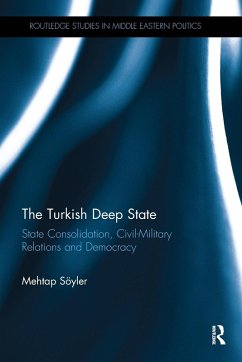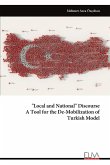The deep state ranks among the most critical issues in Turkish politics. This book traces its origins and offers an explanation of the emergence and trajectory of the deep state; the meaning and function of informal and authoritarian institutions in the formal security sector of a democratic regime; the involvement of the state in organized crime; armed conflict; corruption; and massive human rights violations. This book applies an innovative methodological approach to concept formation and offers a mid-range theory of deep state that sheds light on the reciprocal relationship between the state and political regimes and elaborates on the conditions for the consolidation of democracy. It traces the path-dependent emergence and trajectory of the deep state from the Ottoman Empire to the current Turkish Republic and its impact on state-society relations. It reads state formation, consolidation, and breakdown from the perspective of this most resilient phenomenon of Turkish politics. The analysis also situates recent developments regarding AKP governments, including the EU accession process, civil-military relations, coup trials, the Kurdish question, and the Gülen Movement in their context within the deep state. Moreover, this case-study offers an analytical framework for cross-regional comparative analysis of the deep states. Addressing the lacuna in academic scholarship on the deep state phenomenon in Turkey, this book is essential reading for students and scholars with an interest in democratization, politics and Middle East Studies.
Hinweis: Dieser Artikel kann nur an eine deutsche Lieferadresse ausgeliefert werden.
Hinweis: Dieser Artikel kann nur an eine deutsche Lieferadresse ausgeliefert werden.








